2026 FIFA World Cup Stadiums: List, Locations, Capacities & Host Cities
The 2026 FIFA World Cup will be the biggest soccer event ever held in North America. For the first time, the tournament will take place across three countries — the United States, Canada and Mexico. Fans from around the world will watch 48 teams play 104 matches in 16 world-class stadiums.
Each venue has its own story, from Mexico City’s legendary Estadio Azteca to New Jersey’s modern MetLife Stadium. Every city is preparing for history as the World Cup returns to North America after more than three decades.
This guide covers every stadium, its location, capacity and the key matches that will make 2026 a landmark year for soccer.
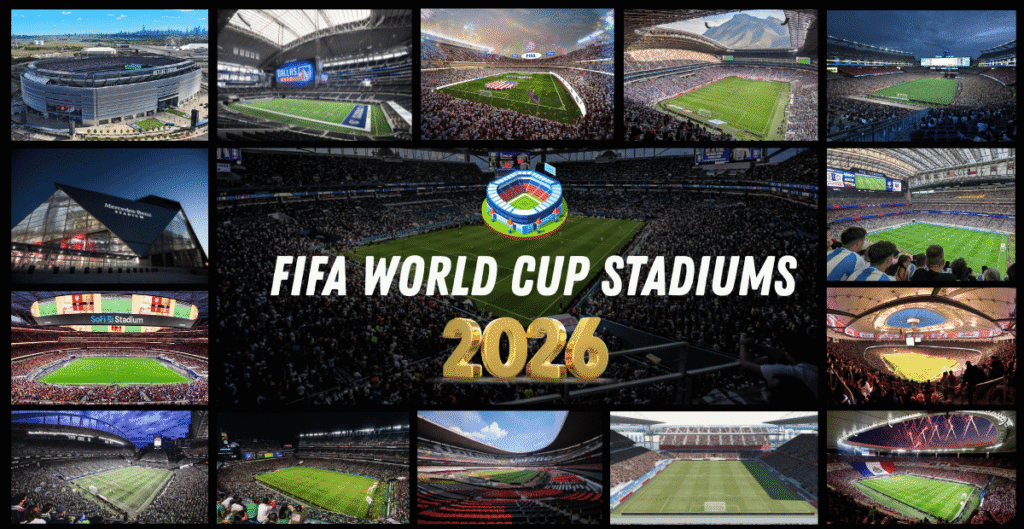
Quick Facts about the 2026 FIFA World Cup
Every country will bring its own flavour to the tournament. The USA will host the majority of matches, including the semifinals and final. Mexico will open the competition, and Canada will host its first-ever men’s World Cup matches.
| Host Nations | United States, Canada, Mexico |
| Total Stadiums | 16 |
| Total Matches | 104 |
| Opening Match | Estadio Azteca, Mexico City |
| Final Match | MetLife Stadium, New Jersey |
| Tournament Dates | June 11 – July 19, 2026 |
| Semifinal Venues | Dallas and Atlanta |
| Third Place Match | Miami |
| Teams Participating | 48 |
Full List of 2026 FIFA World Cup Stadiums
The 2026 FIFA World Cup will feature 16 stadiums spread across North America. Each stadium was chosen for its quality, capacity, and fan experience. From modern arenas with retractable roofs to historic venues with deep football roots, every location adds something special to the tournament.
Below is the full list of stadiums that will host matches in the 2026 World Cup.
| Stadium | City | Country | Capacity |
|---|---|---|---|
| MetLife Stadium | New York/New Jersey | United States | 82,500 |
| AT&T Stadium | Dallas | United States | 80,000+ |
| Mercedes-Benz Stadium | Atlanta | United States | 71,000 |
| SoFi Stadium | Los Angeles | United States | 70,000 |
| Levi’s Stadium | San Francisco Bay Area | United States | 68,500 |
| Lumen Field | Seattle | United States | 69,000 |
| Lincoln Financial Field | Philadelphia | United States | 67,600 |
| Hard Rock Stadium | Miami | United States | 67,000 |
| Gillette Stadium | Boston | United States | 64,600 |
| NRG Stadium | Houston | United States | 72,200 |
| Arrowhead Stadium | Kansas City | United States | 76,400 |
| BC Place | Vancouver | Canada | 54,000 |
| BMO Field | Toronto | Canada | 45,700 (expanded) |
| Estadio Azteca | Mexico City | Mexico | 87,000 |
| Estadio BBVA | Monterrey | Mexico | 53,500 |
| Estadio Akron | Guadalajara | Mexico | 49,800 |
These 16 venues will host all 104 matches. Each stadium is being prepared to meet FIFA’s highest standards for pitch size, seating comfort, and accessibility.
United States FIFA World Cup Stadiums
The United States will host most of the 2026 FIFA World Cup matches. Eleven stadiums across the country will welcome fans from every part of the world.
Each stadium offers its own character, design, and energy. Together, they show the strength of American sports culture and modern architecture.
MetLife Stadium – New York/New Jersey
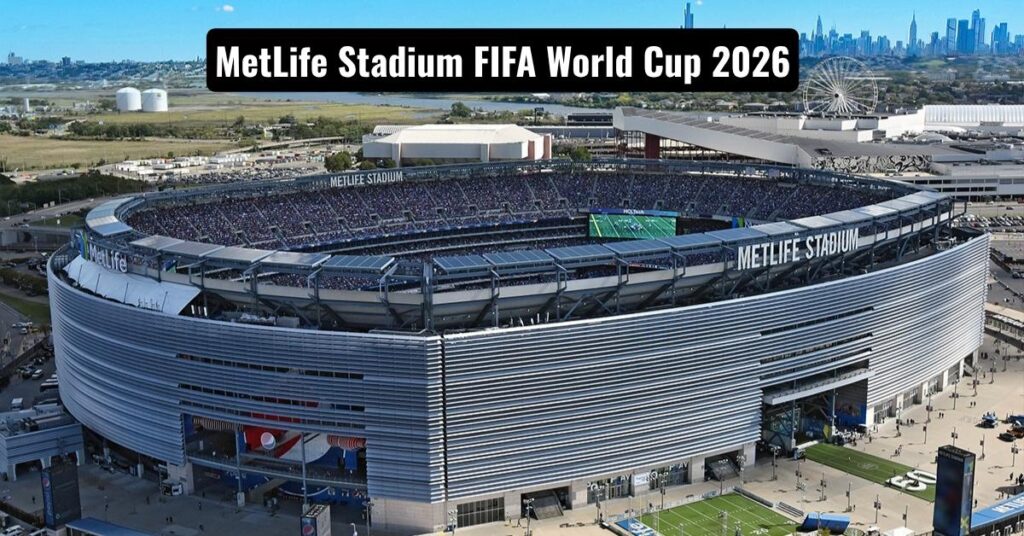
MetLife Stadium will host the World Cup Final on July 19. It can seat about 82,500 fans and stands as one of the largest sports venues in the country.
The stadium will host eight matches, including knockout rounds. It sits just outside New York City and is easy to reach by public transport. Fans will enjoy clear views, wide seating areas, and a lively atmosphere.
AT&T Stadium – Dallas, Texas
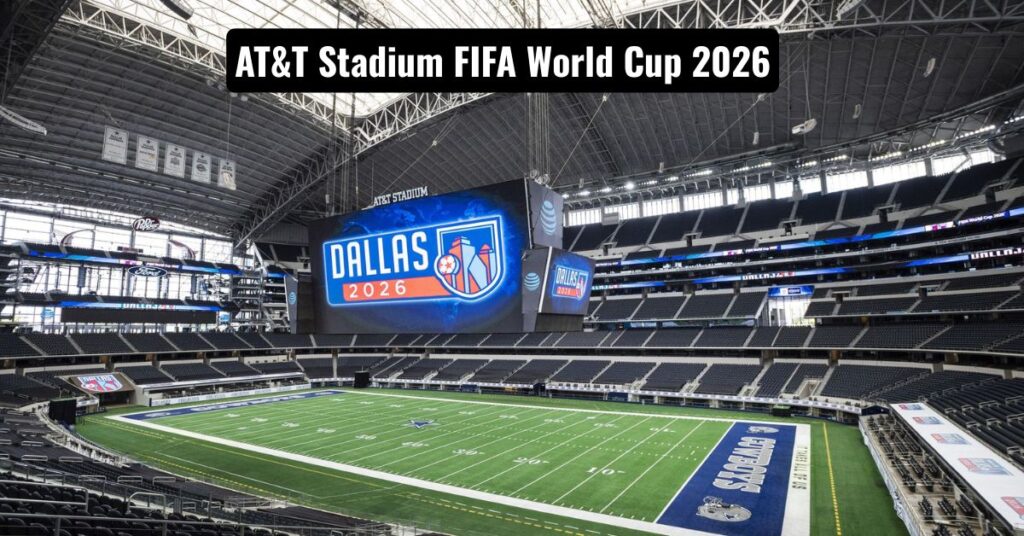
AT&T Stadium will host nine matches, the most of any venue. It can fit up to 94,000 fans with temporary seating. Its retractable roof and giant video screens make it one of the most advanced venues in the world.
The stadium will hold a semifinal and is expected to draw some of the biggest crowds of the tournament.
Mercedes-Benz Stadium – Atlanta, Georgia
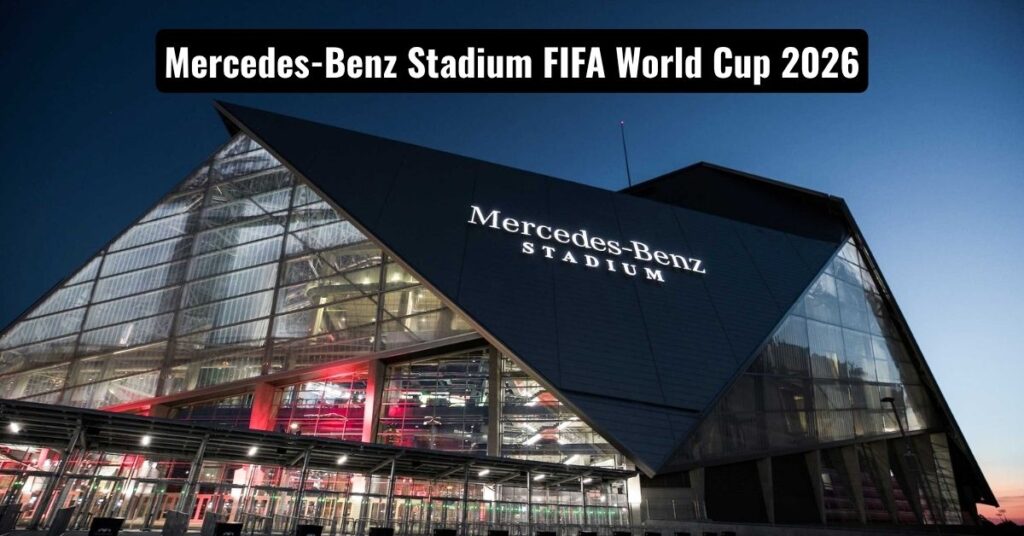
Mercedes-Benz Stadium will hold eight matches, including one semifinal. The design includes a circular retractable roof and a cooling system that keeps the air comfortable in summer.
It can seat about 71,000 people and is known for its bright lighting and strong fan atmosphere.
SoFi Stadium – Los Angeles, California
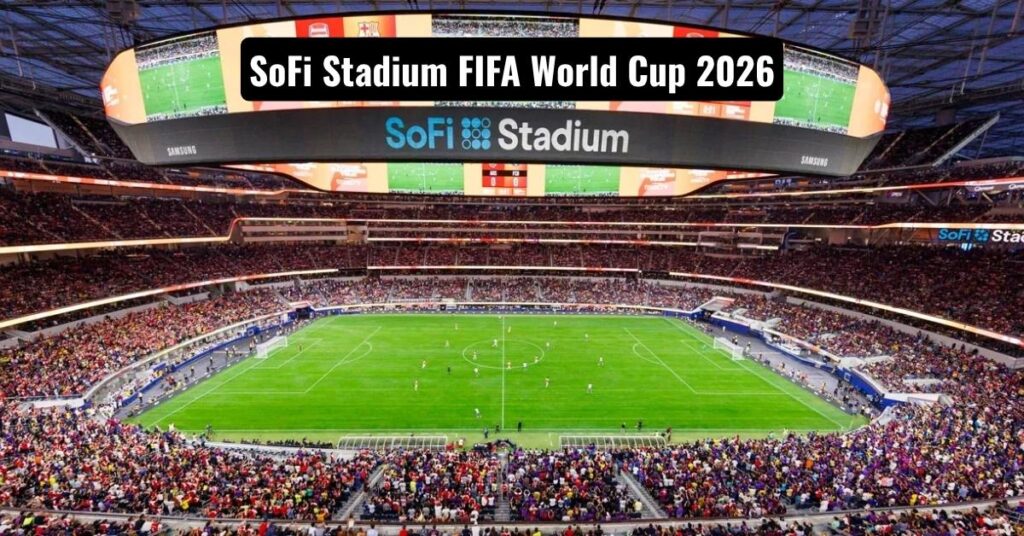
SoFi Stadium will host seven matches, including the first match for the USA team on June 12. It holds around 70,000 fans and features a large clear roof that allows natural light.
The stadium uses advanced technology and wide screens that keep fans close to the action.
Levi’s Stadium – San Francisco Bay Area, California
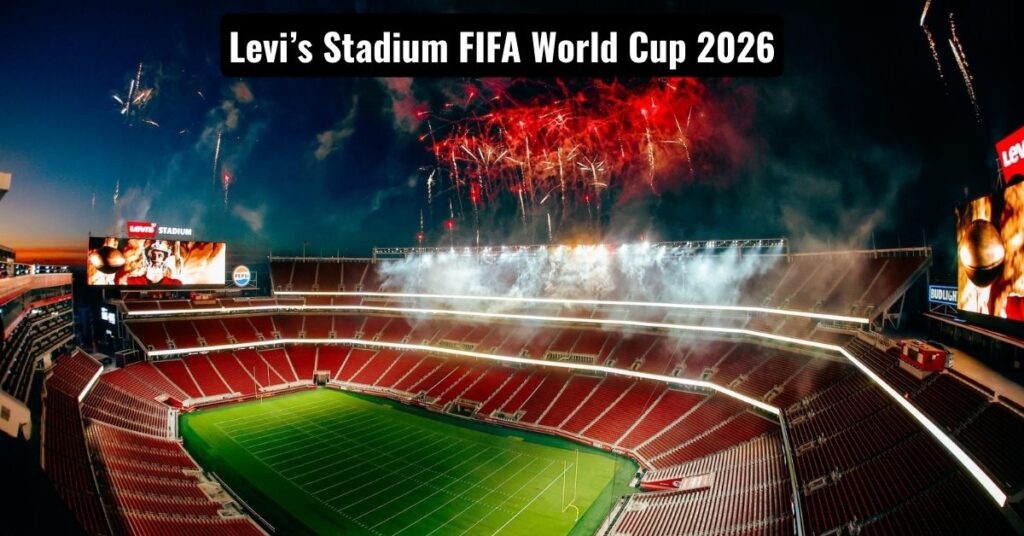
Levi’s Stadium in Santa Clara will host six matches, including group-stage and knockout games. It can seat about 68,500 fans and is known for its clean design and easy transport links.
The stadium runs on solar power and focuses on energy efficiency.
Lumen Field – Seattle, Washington
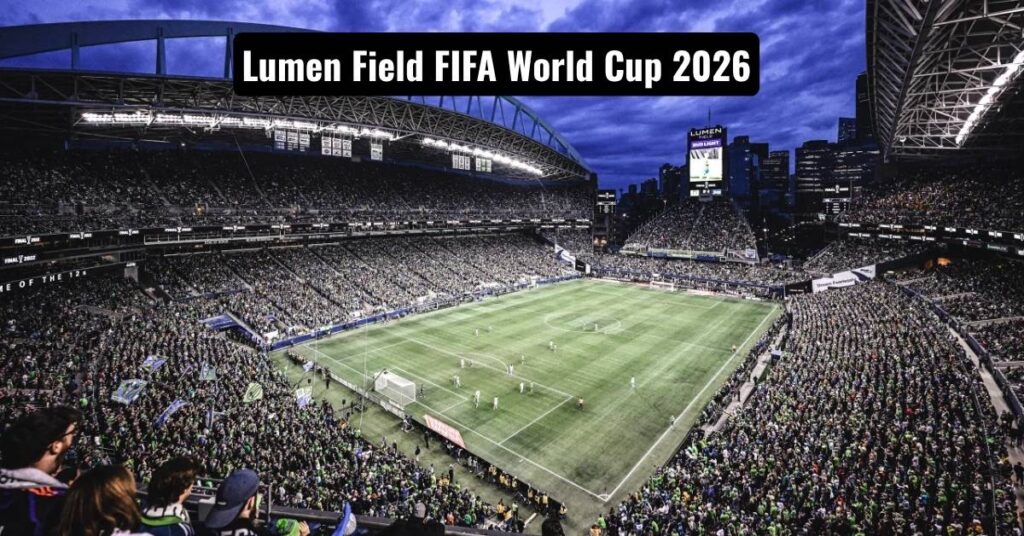
Lumen Field will host six matches and will feature natural grass for the tournament. It can seat around 69,000 fans and is famous for its loud crowd and passionate supporters.
Seattle’s waterfront location and strong soccer culture make it one of the most exciting venues on the schedule.
Lincoln Financial Field – Philadelphia, Pennsylvania
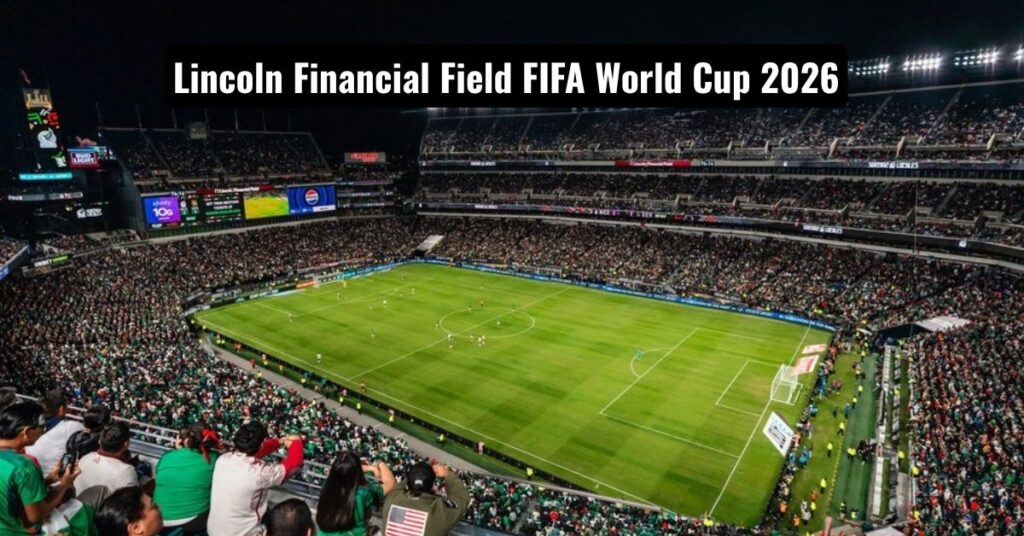
Philadelphia’s Lincoln Financial Field will host six matches, including a Round of 16 match on July 4. The date adds meaning as it falls on U.S. Independence Day.
The stadium holds about 67,600 fans and offers great sightlines and a welcoming crowd.
Hard Rock Stadium – Miami, Florida
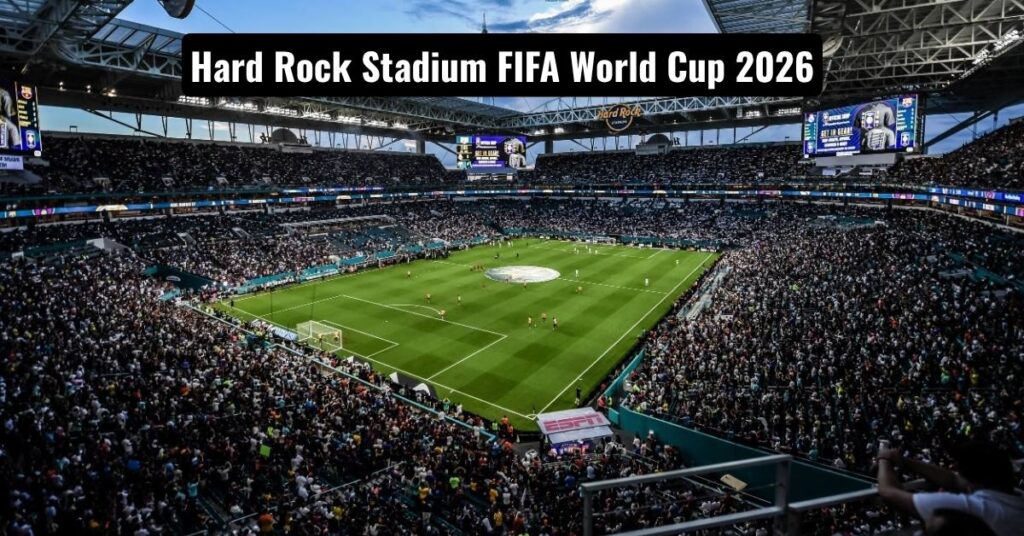
Hard Rock Stadium will host seven matches, including the third-place playoff on July 18. It can seat about 67,000 fans and offers open concourses, shaded areas, and easy access from Miami’s airport.
The warm weather and local culture make it one of the most popular destinations for visitors.
Gillette Stadium – Boston, Massachusetts
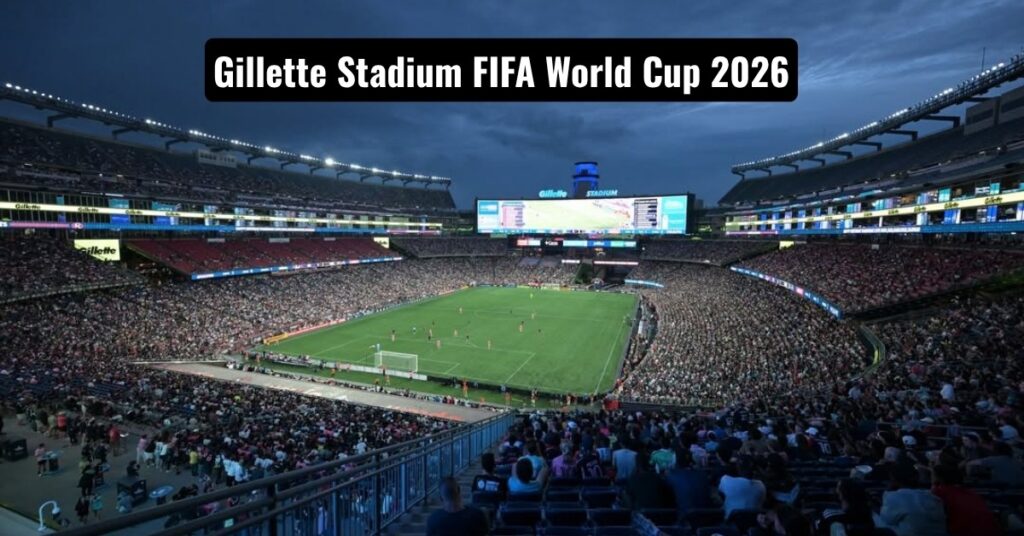
Gillette Stadium will host seven matches, including a quarterfinal. It holds about 64,600 fans and sits in Foxborough, about 30 miles from downtown Boston.
The venue features modern facilities and large screens for better viewing. Fans can enjoy the rich sports history of the region during their visit.
NRG Stadium – Houston, Texas
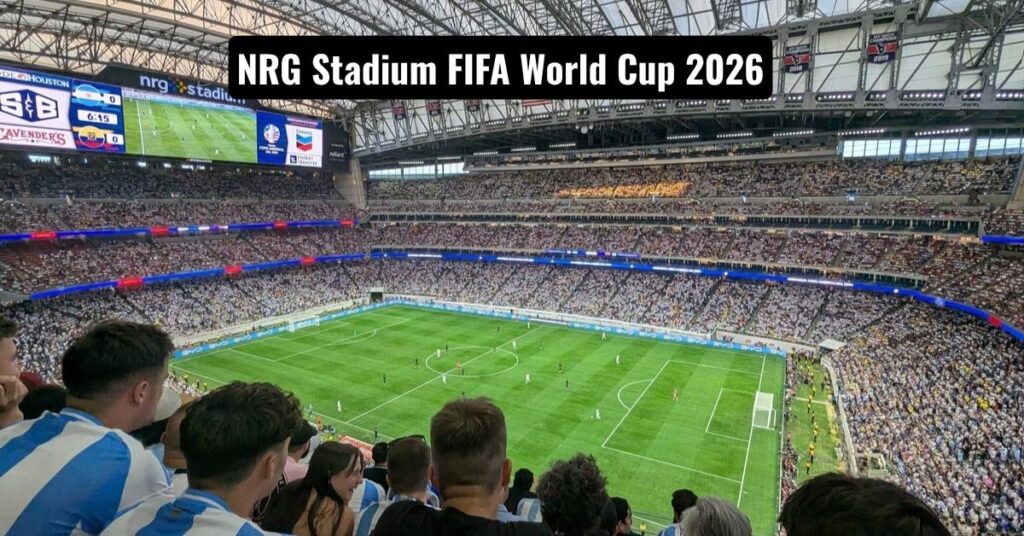
NRG Stadium will host six matches, including knockout games. It can hold about 72,200 fans and has a retractable roof to handle Texas heat.
The stadium is known for its comfort, strong crowd energy, and easy access to hotels and restaurants near downtown Houston.
Arrowhead Stadium – Kansas City, Missouri
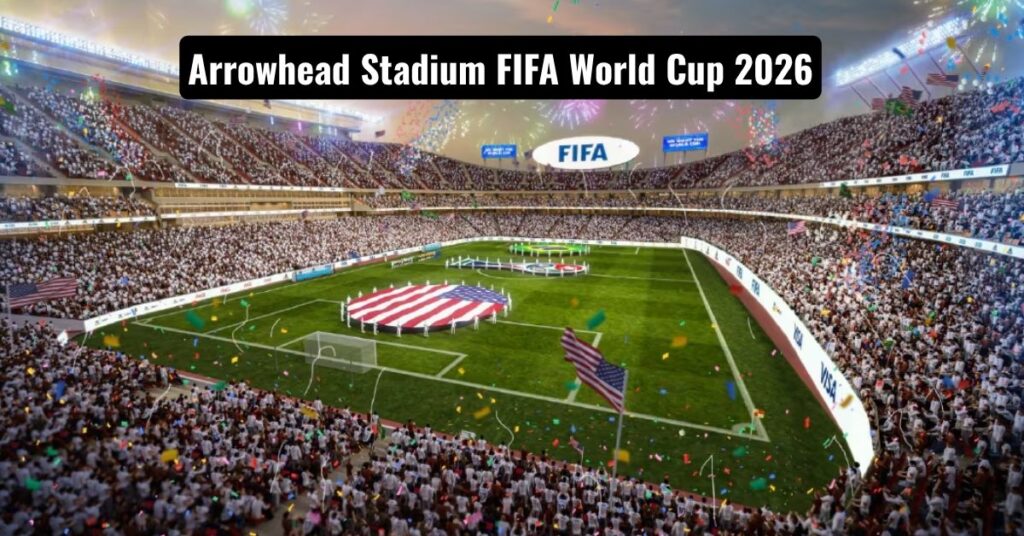
Arrowhead Stadium will host six matches, including a quarterfinal. It can seat about 76,400 fans and is known for its electric atmosphere.
The venue once held the record for the loudest crowd noise in the world. Kansas City’s central location makes it an easy stop for traveling fans.
Quick Summary of USA Stadium Allocation
| Stadium | City | Capacity | Matches | Notable Game |
|---|---|---|---|---|
| MetLife Stadium | New York/New Jersey | 82,500 | 8 | Final |
| AT&T Stadium | Dallas | 80,000+ | 9 | Semifinal |
| Mercedes-Benz Stadium | Atlanta | 71,000 | 8 | Semifinal |
| SoFi Stadium | Los Angeles | 70,000 | 7 | U.S. Opener |
| Levi’s Stadium | San Francisco | 68,500 | 6 | Round of 32 |
| Lumen Field | Seattle | 69,000 | 6 | U.S. Match |
| Lincoln Financial Field | Philadelphia | 67,600 | 6 | July 4 Match |
| Hard Rock Stadium | Miami | 67,000 | 7 | Third Place |
| Gillette Stadium | Boston | 64,600 | 7 | Quarterfinal |
| NRG Stadium | Houston | 72,200 | 6 | Round of 16 |
| Arrowhead Stadium | Kansas City | 76,400 | 6 | Quarterfinal |
These eleven venues will shape the World Cup experience in the United States. From the cool Pacific Northwest to the warm beaches of Florida, each city will bring its own culture and energy.
The American stadiums promise comfort, technology, and unmatched excitement for fans across the world.
Canadian World Cup Stadiums
Canada will host World Cup matches for the first time. Two venues in Vancouver and Toronto will welcome fans and teams from around the world.
BC Place – Vancouver, British Columbia
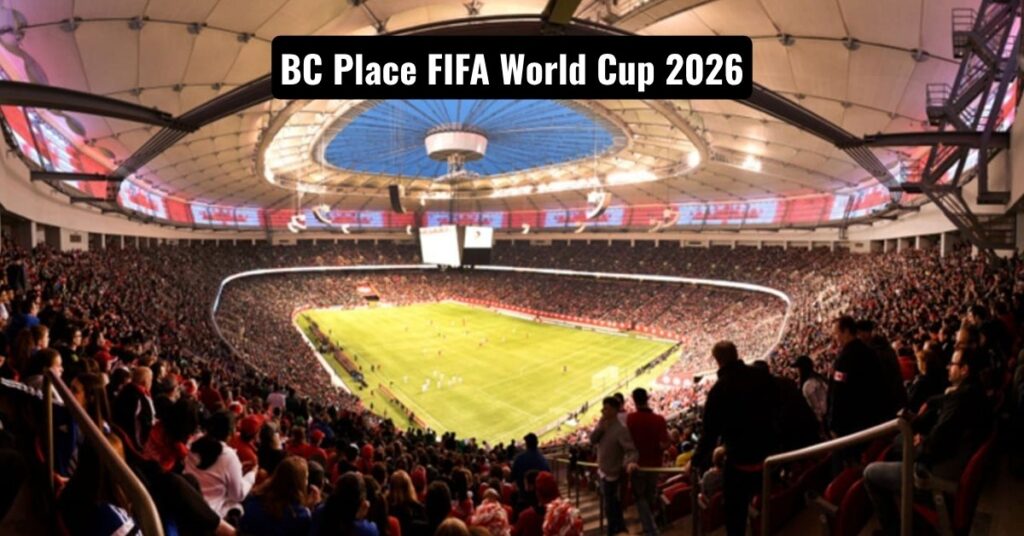
BC Place will host seven matches, including Canada’s opening game on June 11. The stadium has a retractable roof and seats about 54,000 fans. It hosted the 2015 Women’s World Cup Final and will feature new natural grass and upgraded fan areas.
BMO Field – Toronto, Ontario
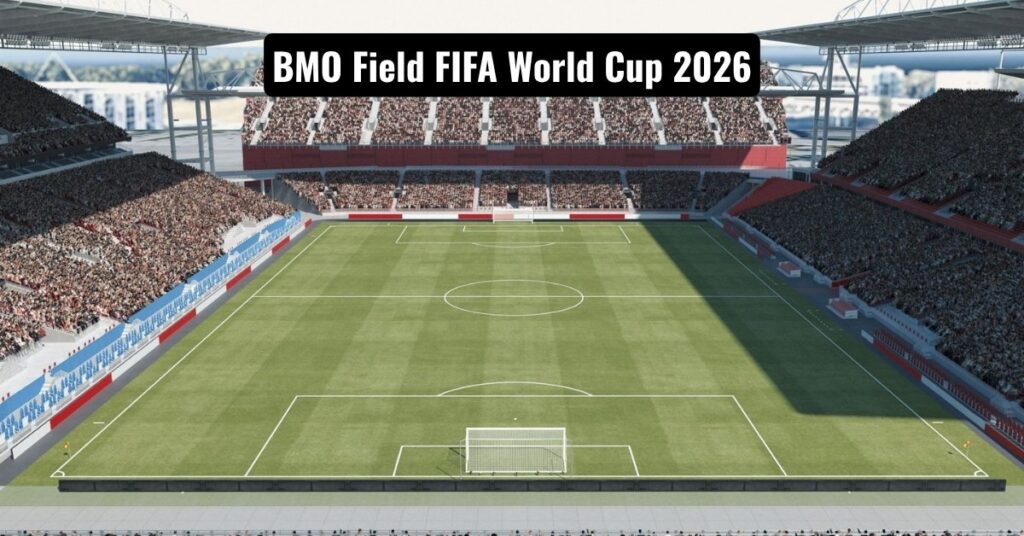
BMO Field will host six matches, including several with Canada’s national team. The stadium will expand to about 45,700 seats using temporary stands. Located near downtown Toronto, it’s easy to reach by public transport and offers excellent views from every section.
Mexican World Cup Stadiums
Mexico becomes the first country to host the World Cup three times. Its three stadiums will bring color, energy, and history to the tournament.
Estadio Azteca – Mexico City
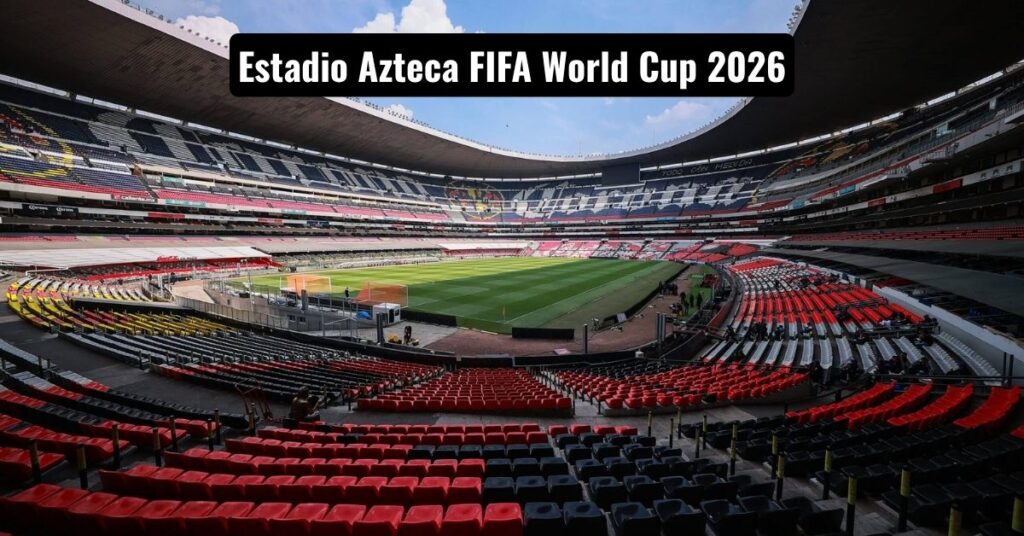
Estadio Azteca will host the opening match on June 11. It can hold about 87,000 fans and remains one of football’s most historic venues. The stadium hosted the finals in 1970 and 1986 and is now being renovated with new seating, lighting, and hospitality areas.
Estadio BBVA – Monterrey
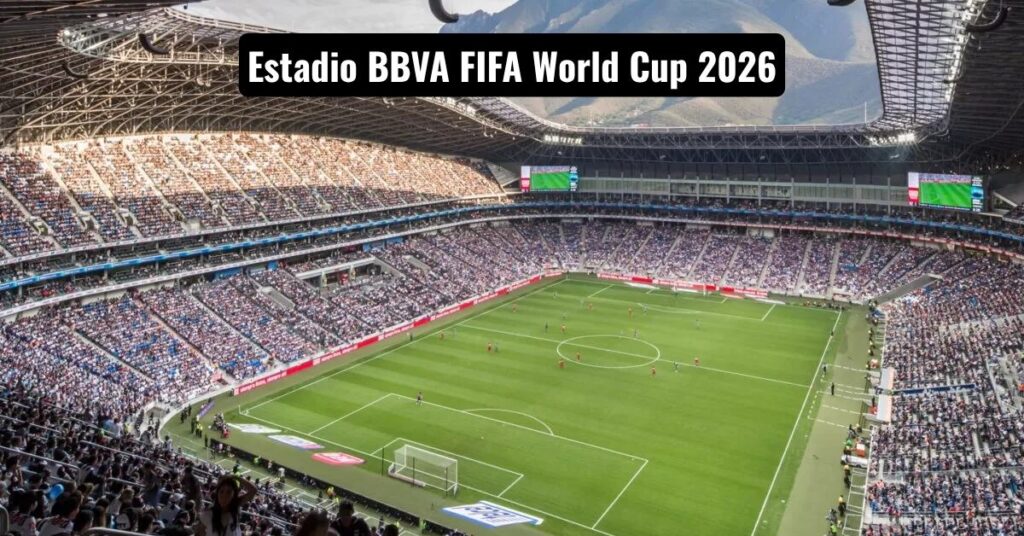
Estadio BBVA, known as El Gigante de Acero (The Steel Giant), will host four group-stage matches. It has a stunning mountain backdrop and can seat around 53,500 fans. Modern upgrades will improve fan comfort and sustainability.
Estadio Akron – Guadalajara
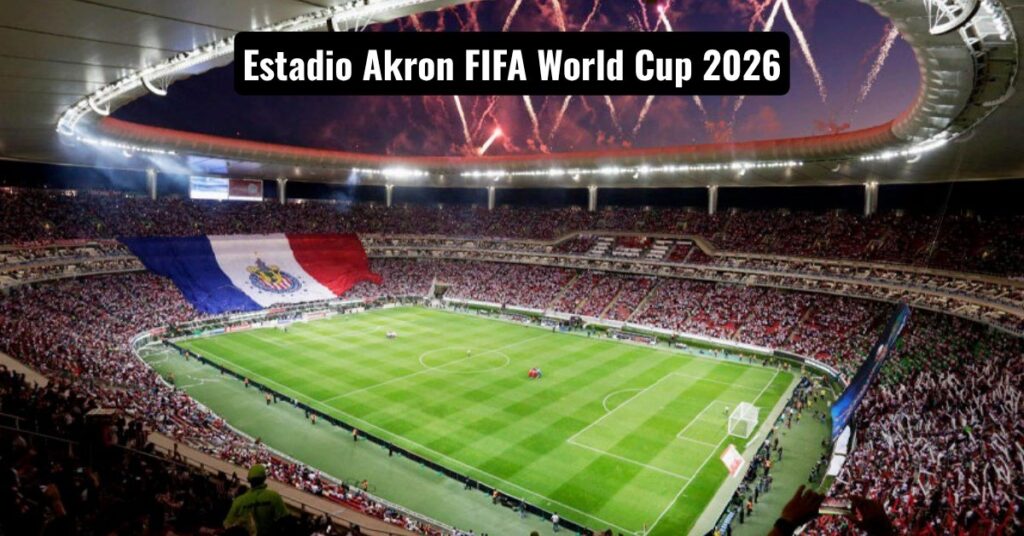
Estadio Akron will host four group-stage matches, including one with Mexico’s national team. Its design blends into the landscape like a green volcano.
Renovations include improved lighting, seating, and easier transportation access.
Key Stadiums and Major Matches
| Stage | Stadium | City | Capacity | Notable Detail |
|---|---|---|---|---|
| Opening Match | Estadio Azteca | Mexico City | 87,000 | Third time hosting an opening match |
| Semifinal 1 | AT&T Stadium | Dallas | 80,000+ | Largest number of matches |
| Semifinal 2 | Mercedes-Benz Stadium | Atlanta | 71,000 | Roof and cooling technology |
| Third Place Match | Hard Rock Stadium | Miami | 67,000 | Tropical setting and fan zones |
| Final Match | MetLife Stadium | New Jersey | 82,500 | Host of the 2026 World Cup Final |
Stadium Design, Upgrades and Sustainability
Each stadium is being upgraded to meet FIFA’s high standards. Many are adding new technology, improved turf, and better accessibility.
- USA venues like AT&T and SoFi Stadium are expanding hospitality and seating areas.
- BC Place and BMO Field in Canada are replacing turf with natural or hybrid grass.
- Mexico’s Estadio Azteca is being modernized with advanced lighting, sound, and fan facilities.
Several venues are also improving sustainability. Seattle’s Lumen Field uses solar energy and water-saving systems. Vancouver’s BC Place operates on renewable energy. All 16 venues are improving wheelchair access and fan services to make the experience inclusive for everyone.
How FIFA Selected the Stadiums
FIFA reviewed 23 candidate cities before choosing the final 16. Each stadium was evaluated on infrastructure, location, transport, and climate.
- Pitch quality: All venues must have natural or hybrid grass.
- Transportation: Host cities need strong airports, hotels, and public transit.
- Climate: FIFA balanced warm and cool regions for player comfort.
- Legacy: Cities that invest in community and sustainability earned higher rankings.
Some cities like Chicago and Baltimore were left out due to logistical issues or overlapping markets. The final selection offers balance between historic legacy and modern design.
Travel and Fan Guide by Country
United States
The U.S. offers easy travel between cities through major airports and highways. Amtrak trains connect many East Coast venues. Fan zones will be set up in most host cities, offering music, big screens, and local food.
Canada
Public transit makes travel simple. Vancouver’s SkyTrain and Toronto’s GO Transit both connect directly to stadiums. The mild summer climate will make watching outdoor matches comfortable.
Mexico
Mexico’s host cities are rich in culture and hospitality. Metro and bus systems connect to all stadiums. Fan zones and cultural events will fill public squares and parks across the country.
Free Printable Stadium List and Map
Fans can download a Printable World Cup 2026 Stadium List (PDF) with all 16 venues, cities, and capacities.
A Printable Stadium Map (PDF) is also available, showing stadium locations across North America with travel routes for fans planning multi-city trips. Both can be saved or printed for quick reference.
FAQs – 2026 FIFA World Cup Stadiums
How many stadiums will host the 2026 FIFA World Cup?
Sixteen stadiums across the United States, Canada, and Mexico will host all 104 matches of the 2026 tournament.
Where will the opening match be played?
The opening match will take place at Estadio Azteca in Mexico City, one of the most famous stadiums in football history.
Where is the 2026 World Cup Final?
The final will be held at MetLife Stadium in New Jersey, just outside New York City, on July 19, 2026.
What is the biggest stadium in the 2026 World Cup?
Estadio Azteca in Mexico City is the largest, with a capacity of about 87,000 fans.
Which stadiums will host the semifinals?
The semifinals will be played at AT&T Stadium in Dallas and Mercedes-Benz Stadium in Atlanta.
How many matches will Canada host?
Canada will host 13 matches — seven in Vancouver and six in Toronto.
How many matches will Mexico host?
Mexico will host 13 matches across Mexico City, Guadalajara, and Monterrey.
Which stadiums are new or recently built?
SoFi Stadium in Los Angeles and Estadio BBVA in Monterrey are the most modern venues, both opened within the past decade.
Are all the stadiums grass fields?
Yes. FIFA requires all World Cup venues to have natural or hybrid grass. Some stadiums are replacing their artificial turf before the tournament.
Can fans travel between countries easily?
Yes. The three host nations are coordinating visa and entry programs to make border crossings simple for fans during the World Cup.
